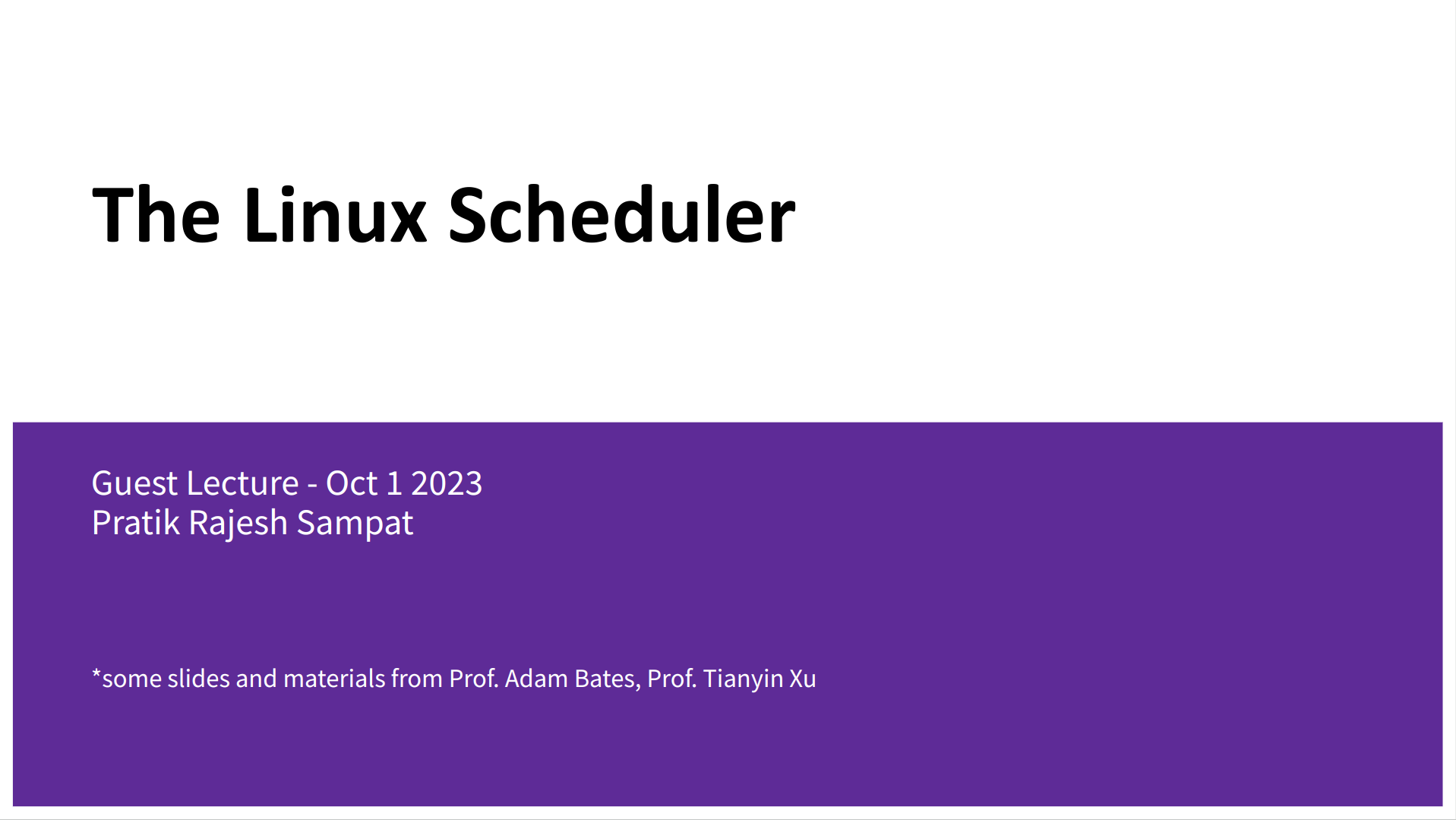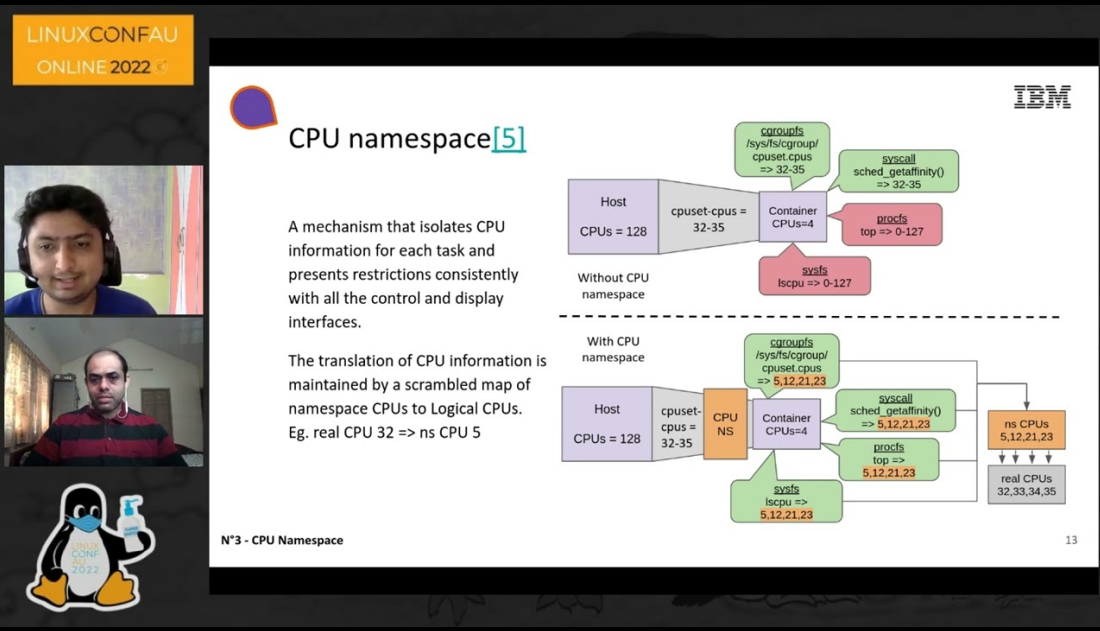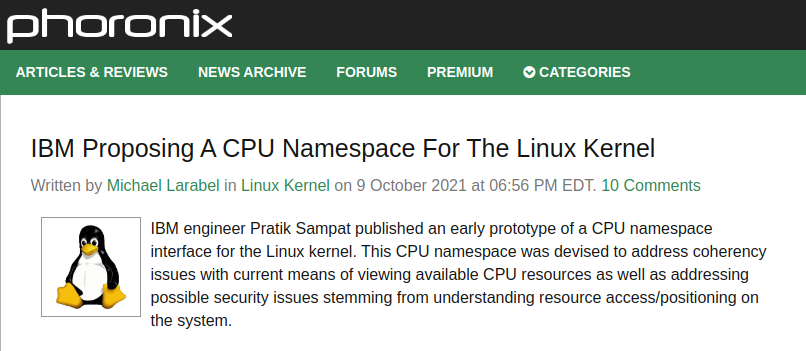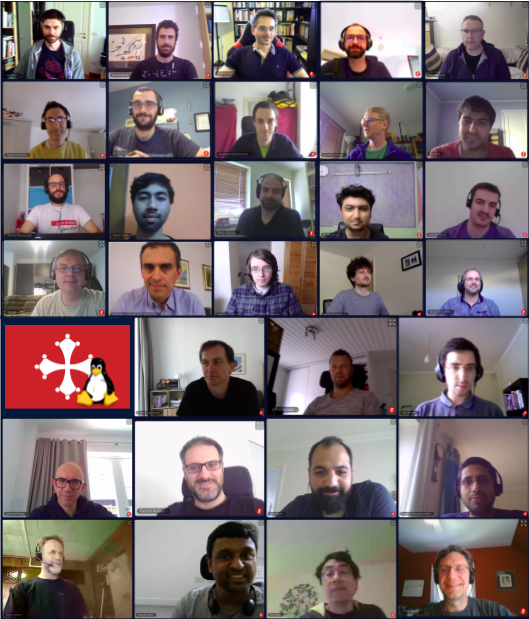About me
I am a MS CS student at the University of Illinois Urbana-Champaign, broadly interested in the area of Operating Systems: Task scheduling, energy, memory management at scale.
Prior to joining UIUC, I worked as a Kernel Developer in IBM, Linux Technology Center since 2019 where I was part of the CPU team responsible for building and deploying upstream solutions for Scheduling and Energy management problems that were faced by both the IBM POWER platform and the community. Before joining at IBM, I have graduated with Bachelor's in Technology from PES University.
Research Interests
- Operating Systems
- Linux Containers
- Energy Efficicent Systems
- CPU resource management
- Memory management
Education
-
MS in Computer Science
2022 — 2024University Of Illinois, Urbana-Champaign
-
B. Tech in Computer Science
2015 — 2019PES University, Bangalore, India



